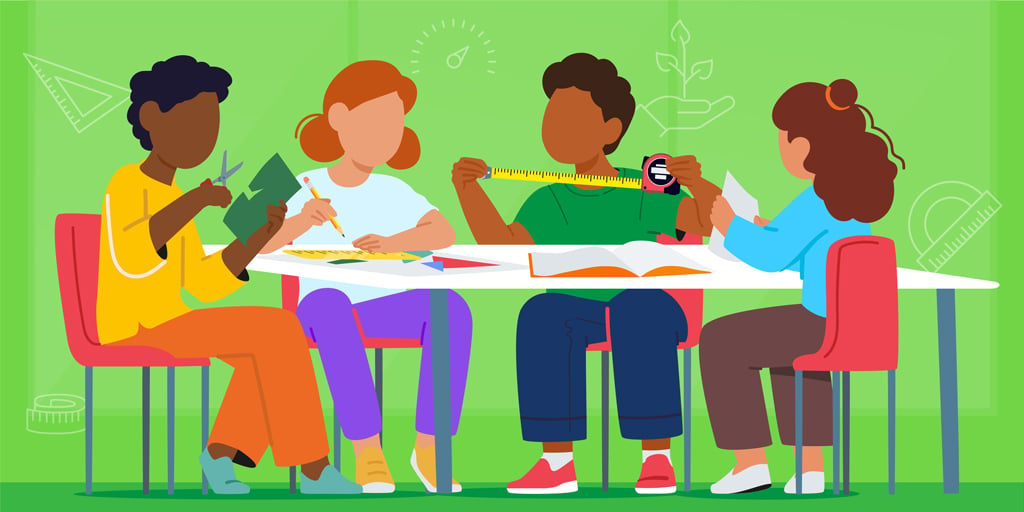Share this
Measurement Isn't Just About Length!
by Connie Warren, M.Ed. on Jan 12, 2024 9:15:00 AM

Teaching Measurement, Even in Reading Class
By incorporating measurement activities into reading lessons, educators can provide students with a hands-on and practical approach to understanding measurement concepts while enhancing their reading comprehension skills.
Early in my teaching career, I faced a new challenge: leading a self-contained classroom. As a literacy specialist with a math-savvy background, thanks to my father (a college math professor), I thought I was up for the challenge. However, I soon discovered that excelling in math and teaching it were worlds apart. My solution was to creatively blend math into my literacy lessons, a strategy that not only worked but also led to my students' success that year.
Integration is powerful. Lesson learned!
The Importance of Content Integration to Create Relevance
1. Content integration helps students see the bigger picture by demonstrating how skills and concepts learned in one subject area can be applied in different contexts. When students encounter measurement activities in their reading class, they can begin to see how measurement is not confined to mathematics alone but is essential in areas such as science, social studies, and everyday life.
3. Furthermore, content integration and relevance promote critical thinking skills. When students are exposed to measurement activities in the reading class, they are encouraged to analyze, interpret, and apply their knowledge in new and meaningful ways. They develop a broader perspective, becoming more adept at problem-solving and making connections between different pieces of information.
By teaching measurement in a contextually rich and integrated manner, educators are equipping students with the skills they need to navigate the complexities of the modern world. So, let's embrace content integration and create relevance across content areas, making class time more meaningful and impactful for our students.
Fun Examples of Content Integration
-
Making Stone Soup
The popular folktale "Stone Soup" provides an excellent opportunity to introduce measurement in the reading class. As students read the story, teachers can discuss the ingredients and quantities mentioned. They can ask questions like, "How much water did they add?" or "What is the weight of the vegetables?" This encourages students to visualize and estimate measurements, fostering their understanding of measurement units such as cups, liters, or pounds. Better yet, make some stone soup together in class! -
Learning about Setting with Time and Calendar Measurement
When teaching students about the concept of setting in literature, time measurement can play a significant role. Teachers can introduce calendars and engage students in discussions about how time is measured, days, weeks, months, and seasons. By analyzing different books or stories, students can explore how time impacts the plot, character development, and mood within a narrative. They can even create their own timelines to better understand the passage of time in their own story. -
Informational Text Discussions about Measurement
Using informational texts that focus on measurement-related topics, educators can spark meaningful discussions in the reading class. For instance, articles about climate change may involve discussions on rising sea levels, temperature changes, and carbon dioxide measurements. This not only enhances reading comprehension but also helps students grasp the real-life implications of measurement in scientific contexts. Students can be encouraged to analyze data, charts, and graphs within the texts, fostering critical thinking skills.
Integrating measurement activities into the reading class not only makes learning more engaging but also helps students develop a practical understanding of measurement concepts. So, the next time you're teaching reading, don't forget that measurement isn't just about length – it's a versatile skill that can be seamlessly integrated into the broader curriculum, enriching students' learning experiences across multiple subjects.
Learn more:
Read Depth of Knowledge: The Key to Unlocking Student Potential
Share this
- January 2026 (3)
- October 2025 (2)
- September 2025 (1)
- August 2025 (1)
- July 2025 (1)
- June 2025 (1)
- April 2025 (2)
- March 2025 (3)
- January 2025 (3)
- December 2024 (1)
- November 2024 (1)
- October 2024 (4)
- September 2024 (2)
- August 2024 (3)
- July 2024 (2)
- June 2024 (4)
- May 2024 (3)
- April 2024 (4)
- March 2024 (4)
- February 2024 (3)
- January 2024 (5)
- December 2023 (3)
- November 2023 (5)
- October 2023 (5)
- September 2023 (5)
- August 2023 (4)
- July 2023 (5)
- June 2023 (8)
- May 2023 (2)
- April 2023 (3)
- March 2023 (4)
- February 2023 (1)
- January 2023 (1)
- November 2022 (1)
- October 2022 (1)
- September 2022 (1)
- August 2022 (1)
- June 2022 (1)
- April 2021 (1)
- March 2021 (1)
- October 2020 (1)
- December 2019 (1)
- November 2019 (1)
- October 2019 (1)
- July 2019 (1)
- January 2019 (1)
- December 2018 (1)
- October 2018 (1)
- August 2018 (1)
- May 2018 (2)
- April 2018 (1)
- March 2018 (2)
- February 2018 (2)